Fifa's Sepp Blatter reiterates call for video challenges
- Published
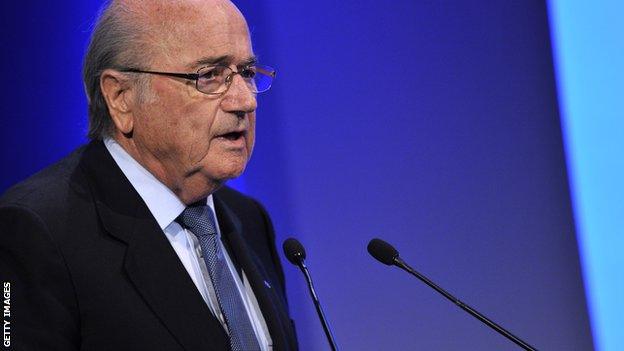
Fifa president Sepp Blatter wants to "support referees in their difficult task"
Fifa president Sepp Blatter has renewed his call for the use of video challenges during matches.
In Fifa magazine The Weekly, the head of world football's governing body wrote how managers could have two "calls" per match to contest decisions.
However, the calls could only be used once play had come to a halt and would "barely disturb the flow of the game".
Blatter first made his surprise move for video challenges at Fifa's annual congress in Sao Paulo, Brazil, in June.
It was at a time when Fifa was receiving negative coverage surrounding the bidding process for the 2018 and 2022 World Cups.
His position opposes that of Uefa president Michel Platini, his possible rival candidate in next year's Fifa presidential election, when the Swiss will be standing for a fifth term.
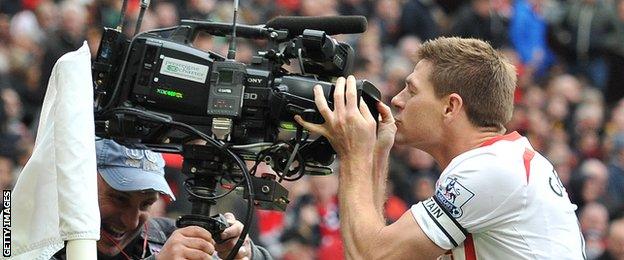
TV could play a bigger role in football if Fifa boss Sepp Blatter gets his way
Platini has, in the past, been opposed to technological advances, such as goal-line technology, but has now softened his and Uefa's stance.
Goal-line technology was used introduced in the Premier League for the 2013-14 season and was also used at the Fifa 2014 World Cup this summer, along with vanishing spray.
Blatter now believes the time is right for another change.
"I too rejected technological aids in the past. But there is no use sticking to entrenched positions and clinging to principles for the sake of it. Our objective must be to make football more transparent and credible and to support referees in their difficult task."
Any change would require agreement from the International Football Association Board (IFAB), who serve as guardians of the game's rules.
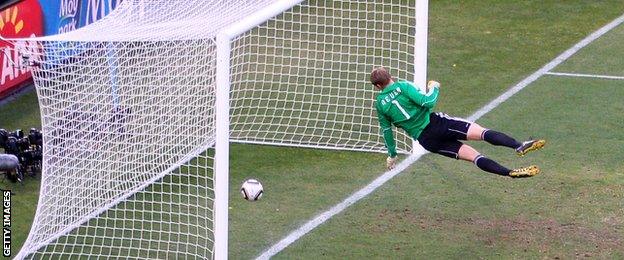
Frank Lampard's 'ghost goal' at the 2010 World Cup in South Africa was key to the introduction of goal-line technology
- Published14 July 2014

- Published14 July 2014
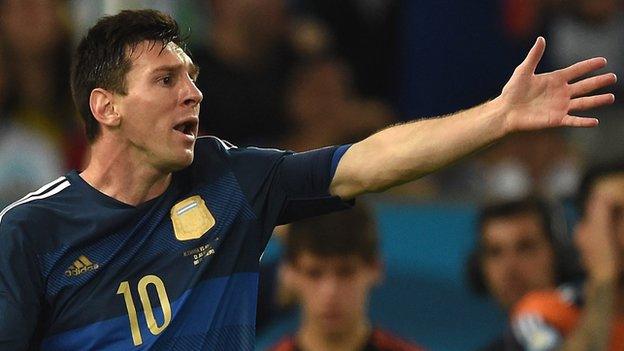
- Published12 June 2014
- Published12 June 2014

- Published16 May 2014
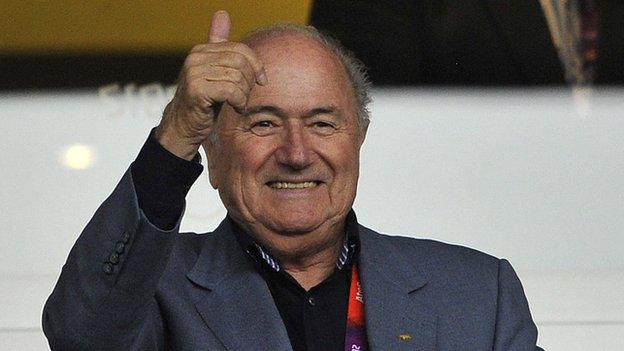
- Published7 June 2019
